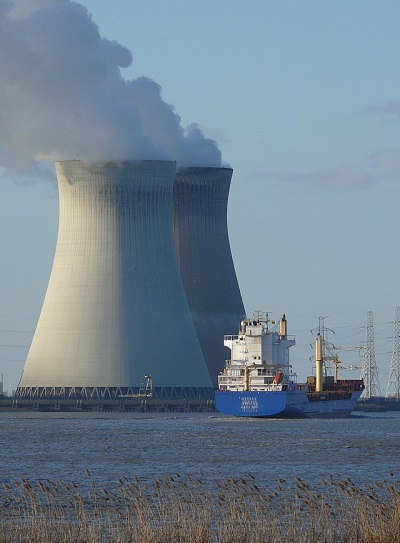A nuclear power plant is a plant where nuclear fission is used to generate electricity.

Nuclear fission is a process where atoms are split apart. This releases energy in the form of heat and radiation. The heat is used to produce steam, which turns a turbine to generate electricity.
Nuclear power plants have been used to generate electricity since the 1950s. The first nuclear power plant was built in Obninsk, Russia. Today, there are more than 400 nuclear power plants operating in over 30 countries around the world.
Nuclear power plants have some advantages over other types of power plants. They don’t produce air pollution or greenhouse gases. And they can run for many years without needing to be refueled.
However, nuclear power plants also have some disadvantages. They require a lot of expensive safety measures to prevent accidents. And the radioactive waste from nuclear reactors can be very dangerous. The radiation produced by nuclear fission is dangerous. It can cause cancer and other health problems. That’s why nuclear power plants are built with safety in mind. They have thick walls and concrete containment structures to prevent the radiation from escaping.
Nuclear power plants are safe, but accidents can happen. The most serious nuclear accident in history happened at the Chernobyl nuclear power plant in Ukraine. On April 26, 1986, the Chernobyl nuclear power plant in Ukraine experienced a catastrophic nuclear accident. A sudden surge of power caused an explosion in one of the reactors, causing a fire that released large amounts of radioactive materials into the environment. The accident resulted in the deaths of 31 people and forced the evacuation of more than 135,000 people from the surrounding area. The Chernobyl nuclear disaster was the worst nuclear accident in history.
Nuclear power is an important part of the world’s energy mix. It produces electricity without emitting greenhouse gases. And it can help us meet our growing energy needs without contributing to climate change. The greenhouse gases that nuclear power plants avoid emitting each year are equivalent to taking more than 80 to 100 million cars off the road. That’s why nuclear power plants are an important part of the world’s energy mix. And it’s why we need to continue to invest in nuclear power.